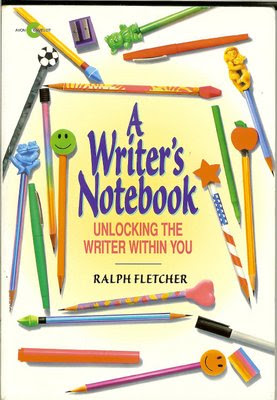Using Random Phrases -Another Version of Lift A Line

I cannot take credit for this idea. It comes from David Morley’s Writing Challenges . But I did see it as a variation on the lift a line strategy that many teachers use. So I have made use of this idea to generate additional writing ideas. I place a phrase into my writing, or I write off the phrase. In that way the lifted line becomes a spark for more writing The idea is that you open a book randomly and place your finger anywhere on one of the pages, without looking. Then select a phrase or a sentence that appeals, or you wish you had written. The selected phrase needs to be near where you place your finger. Transfer the selected words to the top of a new page in your writer’s notebook. Repeat this process using the same book (different pages) or choose different books each time –it depends on your access to books. Here are some lifted phrases I harvested in a short few minutes from my library of books. ‘The sacred moment was turning into an agony’ (Ash Road) ‘A booming voice grunted’...

